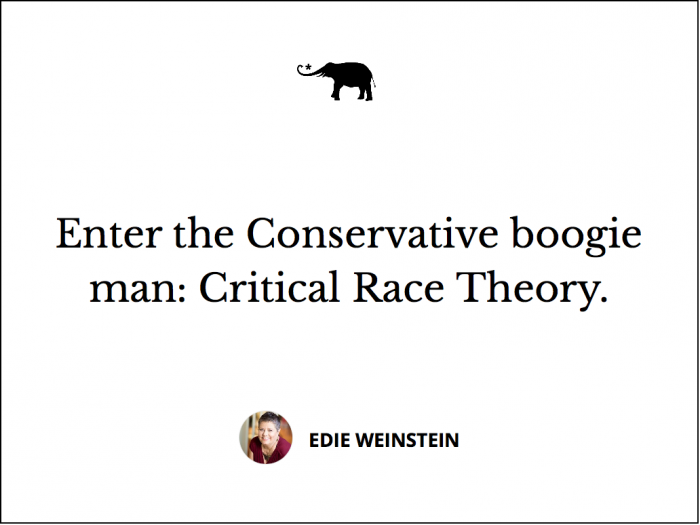I just read this piece about President Biden’s contention that children do need to learn about the darker sides of our country’s founding and development. That includes the horrors faced by the original inhabitants of the land on which we now live.
The trail of tears, the treatment of children in boarding schools, with the motto, “Kill the Indian in him, save the man.” The intention of stripping away their tribal identity and assimilating them, placing indigenous people on reservations…the list goes on.
It would mean accepting the truth that following the attack on Pearl Harbor, Japanese Americans were gathered up, removed from their homes, interred in camps, and even when they were permitted to return, their homes and businesses were gone, and they faced discrimination by White neighbors.
Actor and author George Takei (best known as Lt. Sulu in “Star Trek”) speaks eloquently about the trauma he and his family faced when they were torn away from the lives they had known. In his book, They Called Us Enemy, Takei tells the story from the perspective of the child he was at the time.
Learning about our history would mean coming to terms with the systemic racism that was the cornerstone of the foundation of the United States.
The White House was built, in part by enslaved people whose owners were paid for their labors, not the people themselves.
Many of the founding fathers, including George Washington, Alexander Hamilton, Benjamin Franklin, and Thomas Jefferson, owned those who tended their properties and animals, cleaned their homes, and cared for their children.
Those who opposed slavery were far fewer in number and included John Adams, Samuel Adams, and Thomas Paine. It would mean reframing the relationship between Thomas Jefferson and Sally Hemings as what it really was, a master having dominion over the body of another person.
Descendants of both family bloodlines met and told the story of their shared heritage and why it is essential that the 1619 Project be incorporated into education as well. The 1619 Project is a long-form journalism project developed by Nikole Hannah-Jones, writers from The New York Times, and The New York Times Magazine, which “aims to reframe the country’s history by placing the consequences of slavery and the contributions of Black Americans at the center of the United States‘ national narrative.”
None of this was part of my education as a child in the 1960s and 70s, growing up in the primarily White but then later integrated community of Willingboro, New Jersey.
This is a town in which the first Black family had to sue to purchase their home there. Since then, the demographics have shifted dramatically, with 68 percent of the residents identifying as Black and 14 percent identifying as White.
As a young person, most of my friends were White, with a few Black or (the term used back then) Hispanic. There was one Asian family, and they owned the local Chinese restaurant.
We got along well, paying no attention to cultural differences. I had thought of the concept of being colorblind as a virtue.
Now I have come to recognize that it is limiting at best and damaging at worst. It means denying the richness and diversity we embody. I have strong memories of my parents taking my sister and me to the annual international festival in town and of attending the World’s Fair in New York when I was five and six years old.
When my mother played the soundtrack from South Pacific, and the song “You’ve Got to Be Carefully Taught” came on, I questioned how anyone could teach their kids to hate. She was hard-pressed to give me an answer that made sense to me—to this day, I still don’t understand it.
Enter the Conservative boogie man: Critical Race Theory.
For those who oppose it, their protestations are that it will teach little White children to hate themselves and little Black and Brown children that they are perpetual victims.
In a piece called Critical Race Theory: No One Is Asking You to Apologize For Being White, I made it clear as day that it is not an either/or, but rather an approach to teaching American history. The good, the bad, and the horrifically ugly.
When we know better, we do better. Imagine being a child who was brought up to believe that they are inferior because there was a time when people of their skin hue were considered 3/5 of a person.
Imagine being a child whose ancestors were restricted as to where they could eat, drink water, and in which pools they could swim. Imagine being a child whose parents give them “the talk” about how to come home safely because other children of color don’t always.
An episode of the TV hit, Black-ish addressed it brilliantly. Doesn’t this child have just as much right to have their history affirmed as do the White students with whom they sit in the classroom?
So, let’s just say that by some miracle, stripping off the sugar coating of American History comes to be. It will mean that kids will come home with questions about whether their parents knew about discrimination, racism, bigotry, and hatred.
Did they speak up about it if they knew? Did they agree with it?
If so, why did they think it was acceptable to deny people equal rights based on the happenstance of birth? What are they afraid would happen if we, as a country, lived the lofty sentiments that all (people) are created equal?
If they live in a home in which racist rhetoric is common and accepted, what will it be like to challenge it?
Does this mean that there will be a reckoning and people will need to come clean about their feelings and, even more crucial, be willing to change them?
Only then will we truly be able to say that we are the land of the free since our minds won’t be held captive by hatred.
~









Read 14 comments and reply